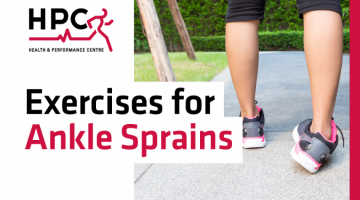Impingement Syndrome | Guelph Physiotherapy

Shoulder impingement syndrome occurs when your rotator cuff muscles and tendons get pinched between the top outer edge of your shoulder blade, called the acromion, and the humerus. When this happens, it causes shoulder pain and irritation.
What Causes Impingement Syndrome?
Shoulder impingement can have a variety of causes. This includes a tear or swelling in the rotator cuff tendon due to overuse, injury, or age-related wear and tear.
It could also be caused by an irritated and inflamed bursa. Bursa is a fluid filled sac that sits between your tendon and the acromion to provide a cushion between the tendon and the bone.
Finally, it could be caused by the shape of your acromion. Some people are born with an acromion that is not flat and may naturally impinge your shoulder due to its shape.
Bone spurs can also develop on your acromion due to age, joint damage, or arthritis, causing the acromion to impinge the shoulder.
Signs and Symptoms of Impingement Syndrome
Typical shoulder impingement symptoms are:
-
Shoulder pain while lifting your arm, reaching forward or behind your back, or lowering your arm from a raised position
-
Pain and tenderness at the front of your shoulder that may move from the front of your shoulder to the side of your arm
-
Pain when lying on the affected side
-
Aching at night that may impact your sleep
-
Shoulder and/or arm weakness and stiffness
Symptoms usually develop gradually over weeks to months. These symptoms could also be signs of other shoulder conditions that are closely related to impingement, including bursitis and rotator cuff tendinopathy.
How is Impingement Syndrome Diagnosed?
Shoulder impingement is diagnosed by a healthcare professional after conducting a physical examination and potentially diagnostic imaging.
Your healthcare professional will first complete a physical exam to check for pain and tenderness as well as assess shoulder range of motion and strength. They will ask you if you are involved in repetitive activities requiring overhead motions, what movements/positions relieve or worsen your pain, and any details regarding what may have caused this shoulder pain to develop.
Your healthcare professional may order X-rays to rule out bone spurs or abnormalities in acromion shape, or an MRI and ultrasound to check for rotator cuff tears and inflammation of the bursa.
What are Common Treatments for Impingement Syndrome?
Treatments for shoulder impingement aim to reduce pain and restore normal function. Common treatment methods include rest, ice, over-the-counter anti-inflammatory medications, steroid injections, and physiotherapy. If non-surgical treatments do not relieve your symptoms, surgery may be used to remove part of the acromion to create more space for the rotator cuff muscles and tendons.
If you are experiencing shoulder pain, call HPC at 519-767-5011 to book an appointment with one of our Guelph Physiotherapy practitioners.
*About the HPC Student Volunteer Program*
Each year, approximately 30 University of Guelph students are selected following a competitive application process to take part in the “HPC Volunteer Program.” This program provides an opportunity for U of G student volunteers to translate their academic knowledge into practice, while gaining first-hand experience and mentorship from the team of certified physiotherapists and chiropractors at the University of Guelph’s Health and Performance Centre. As a result of this exceptional partnership between the University of Guelph and the HPC practitioners, students can gain valuable insight on evidence-based practice prior to graduating from their respective programs. Click here for more information on co-curricular experiential learning opportunities at the University of Guelph. This article was written by members of the 2021-22 HPC Student Volunteer Program.
References
Cleveland Clinic. (n.d.). Shoulder impingement syndrome. https://my.clevelandclinic.org/health/diseases/7079-shoulder-impingement-syndrome
Zelman, D. (2019, June 20). Shoulder impingement syndrome. WebMD. https://www.webmd.com/arthritis/impingement-syndrome
Shoulder impingement/ rotator cuff tendinitis. (2011). Orthoinfo. https://orthoinfo.aaos.org/en/diseases--conditions/shoulder-impingementrotator-cufftendinitis



